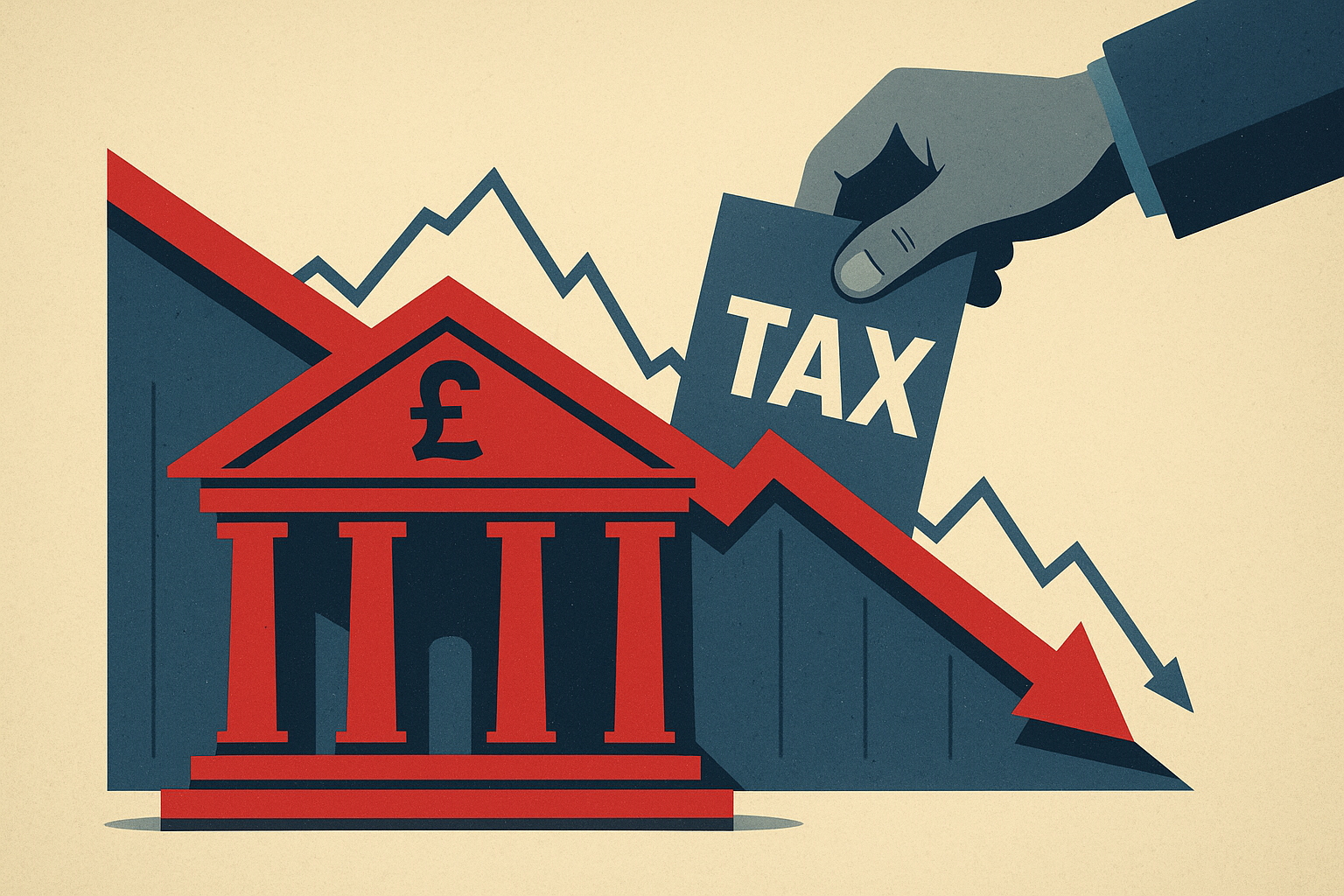The British banking sector has been rattled once again. On August 29, 2025, shares of leading UK banks shed nearly £7 billion in market value, following mounting calls for a windfall tax on bank profits. The proposal, pushed by the Institute for Public Policy Research (IPPR), echoes Thatcher-era levies on financial institutions—reviving investor concerns about state intervention and policy-driven earnings risks.
A Jolt to Investor Confidence
The sell-off was swift and sharp. According to The Guardian’s business live coverage, the prospect of a tax hike sent shares of Lloyds, Barclays, and HSBC lower by mid-morning, dragging the FTSE 350 Banks Index into negative territory. For a sector already facing margin pressure from slowing mortgage demand and tighter regulatory oversight, the specter of additional taxation compounds uncertainty.
This is not the first time UK banks have been at the center of political debates. Just last year, the sector benefited from higher net interest margins amid elevated Bank of England policy rates. However, those profits have drawn scrutiny, with policymakers arguing that lenders have disproportionately benefited while households face affordability crises.
Why This Matters for Investors
Policy Risk Re-Emerges
Windfall taxes are rarely viewed favorably by markets. Historically, they have signaled government willingness to prioritize political expediency over long-term economic stability. The last comparable levy in the UK, implemented under Prime Minister Margaret Thatcher in the 1980s, imposed significant one-off charges on banks’ balance sheets.
For investors, the renewed discussion signals that policy risk is back at the forefront of UK financial markets. With a general election cycle approaching, politicians may find taxing banks a politically popular move, regardless of its market impact.
Market Reaction and Potential Contagion
The immediate £7 billion sell-off underscores how quickly sentiment can turn. If the government confirms its intention to legislate, further downside may be in store—not just for banks but also for broader UK equities, as confidence in regulatory stability weakens. Bond investors, too, could see ripple effects: higher taxation reduces banks’ retained earnings, potentially limiting their capital buffers.
Expert Views and Context
According to analysts cited by Bloomberg, windfall tax rumors have already shaved 2–4% off forward earnings estimates for major banks. Citi’s equity research team noted that while UK lenders remain fundamentally sound, their valuations are increasingly hostage to “headline risk” rather than core profitability metrics.
The IPPR report driving the debate argues that such a tax could generate billions in revenue to fund public services. Yet, market veterans caution that punitive measures risk undermining London’s status as a global financial hub, especially as competition from New York, Singapore, and Frankfurt intensifies.
Future Trends to Watch
- Political Timelines – Investors should monitor parliamentary debates in the coming weeks. Any formal consultation on the tax will be a pivotal market-moving event.
- Bank Earnings Guidance – Upcoming quarterly results may include management commentary on contingency planning. Forward guidance could swing shares dramatically.
- Global Spillover – The UK’s stance could embolden other European governments facing fiscal pressures, raising the possibility of similar levies elsewhere.
Key Investment Insight
For now, the sell-off may present a tactical entry opportunity for investors willing to stomach political risk. UK banks remain undervalued on a price-to-book basis compared to European and U.S. peers, and dividend yields remain attractive. However, any confirmed tax could wipe out those advantages in the short term.
Prudent investors should adopt a wait-and-see approach: hold exposure but avoid overconcentration until clearer signals emerge from Westminster. Those with higher risk tolerance may consider selective buying if valuations drop further, but hedging via sector ETFs or options could be wise to offset potential volatility.
UK banks now sit at the intersection of politics and profitability—a reminder that markets are never insulated from policy shifts. Investors navigating this landscape must balance opportunity against heightened risk.
For ongoing updates on market-moving policy debates and daily investor insights, follow MoneyNews.Today—your trusted source for actionable financial news.





